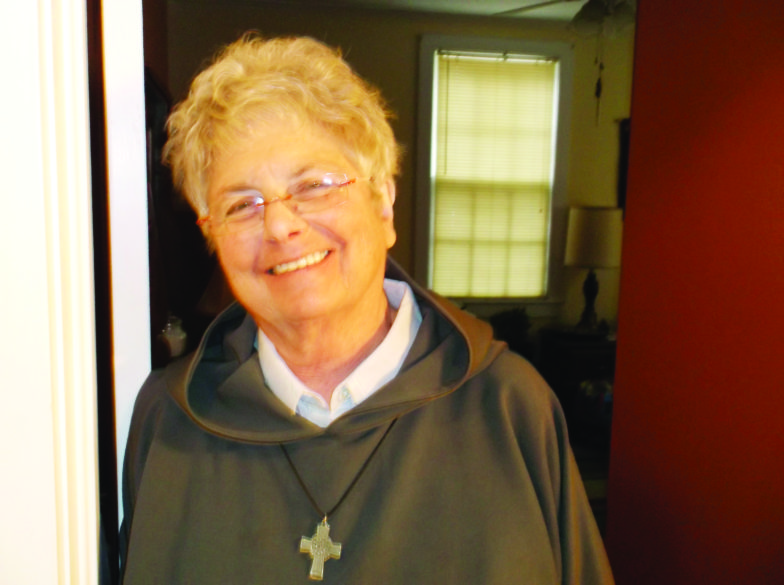Reflections on Life
By sister alies therese
Betrayal is a horrible experience. If you have not been betrayed, you are most fortunate; many, if not most of us have been.
The children massacred in Uvalde, the people killed in El Paso for being Hispanic or Buffalo for being Black, or Dachau for being Jewish, have certainly been betrayed. We have betrayed one another through poverty (food insecurity, unfair wages, poor health care), abortion, war, mass shootings and the death penalty, and, of course, abuse and poor eldercare. And perhaps the worst betrayal of all is convenient, rigid or complacent Christianity, Catholicism.
These keep us from friendship with God; expressed as a deepening groan or a desire to serve self. Can I set betrayal aside and learn to put others first? Will I ever be friends with God again? Where has the light of Epiphany gone? The Wise Ones chose the Light by betraying King Herod.
We can experience overpowering and challenging choices when on the road to recovery and we see that in AA or Al-anon, and various sorts of other helping communities. Depending upon how one is addicted or challenged can make choices toward recovery even more difficult. In his book “The Betrayal Bond” (1997), Dr. Patrick Carnes tells this little story:

“Tribal peoples in Africa put out slotted cages filled with fresh fruit. The cages are anchored securely to the ground. Monkeys discover the cages, reach in, and grab the fruit. Of course, they cannot retrieve the fruit because as long as the hand holds the fruit, it will not fit through the bars of the cage, the monkeys are trapped. They could let go of the fruit and escape, but they refused to let go … trauma bonds are similar….” (page 210)
We know from AA that even when one has been betrayed by family or others, institutions, and certainly booze/drugs recovery is essential to living in the light. We also know that Bill W. (co-founder of AA) received advice from Dr. Carl Jung to tell stories to be set free of strangulation by fear and intimidation. These stories might reveal how betrayal has featured in life and made friendships difficult. Perhaps the stories might show how one has become a betrayer.
So, what to do now? What have we refused to let go of in order to put betrayal in the past? Are we stuck in a trauma bond? Is the light ever to be seen again?
What is the way back to friendship? In order to restore our friendship God took on a human nature to teach us how to forgive. Betrayal features in Jesus’ life more than just the Garden. Each time followers rejected what He taught; the message of God was betrayed. When we don’t stop the tongues of gossip or stand for something we believe in, we betray not only others but our inner life. Certainly, we are betrayed when we continue any big lie…that green is yellow, yellow is green, perpetuating the lie and making our ability to follow the light more difficult.
Arthur Simon, in his book “How Much Is Enough?” (2003) relates this:
“A six-year-old boy, taken to an ER following an accident was given a glass of milk. ‘How deep shall I drink?’ he asked. He came from a very poor family in which something as precious as milk had to be shared with six brothers and sisters, drinking too deeply cheated others.” (page 132) Of course, his choice is to share or to betray his siblings. What will he do? What might I do?
George Eliot sometime in 1850 said: “What do we live for, if it is not to make life less difficult for each other?”
“Forgiveness,” says Christina Baldwin, “is the act of admitting we are like other people.” We mess up, we are selfish, and we might betray ourselves when forgiveness is not on the table. Servant of God, Dorothy Day (and Peter Maurin) remind us of a basic Catholic Worker tenant: make it easy for people to be good. There is no betrayal in that. No, it is the light.
Jesus showed us the way and as we move into this new year, we might have pause to remember that – on the night He was betrayed, He left us Himself in the Eucharist to be always with us.
In 1785, Anne Letitia Barbauld noted: “Nobody ought to be too old to improve; I should be sorry if I was, and I flatter myself I have already improved considerably by my travels….” I should very much like to improve … You?
BLESSINGS.
(Sister alies therese is a canonically vowed hermit with days formed around prayer and writing.)
